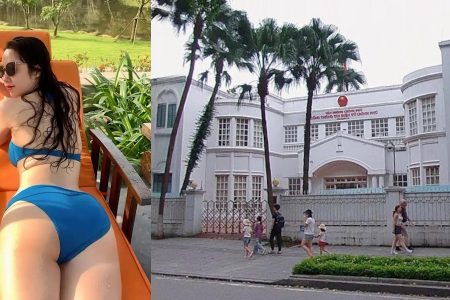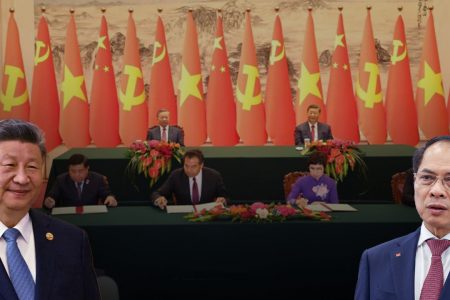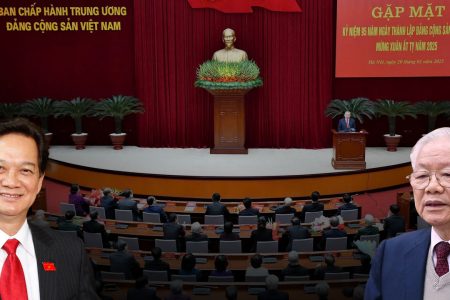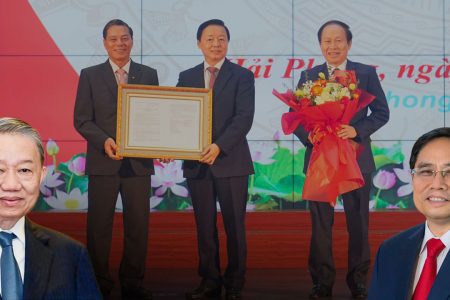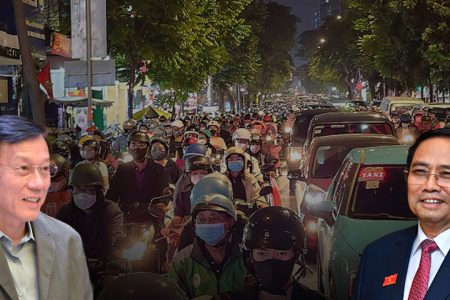Vietnam’s current concept of a socialist-oriented market economy has officially appeared since 1986, after the so-called “Economic Reform” of the Communist Party of Vietnam.
At that time, when the risk of Vietnam’s centrally planned economy, following the Soviet model – the economic model of Communism, also known as the subsidized bureaucratic economy – made the majority of Vietnamese people hungry, even having to eat “raw wheat” a type of donkey and horse food to survive.
While the concept of a market economy is characteristic of the economy of Capitalism, it is in stark contrast to the centrally planned economy of Communism. The fundamental difference is the concept of exploitation and ownership of the means of production.

Because Vietnam has carried out economic reforms, moving to a market economy, it means that the Communist Party of Vietnam accepts the regime of exploitation of people by people, and multi-sector ownership of the means of production, compared to the Communism state ownership. That is the reason why the loyal senior leadership members of the Communist Party of Vietnam at that time opposed the capitalist market economy. They affirmed that Communists do not accept exploitation. If there exists a regime of people exploiting people in Vietnam, then the Communist Party of Vietnam is not a political organization that follows Communism.
Let’s take a moment to see that the birth of the “Socialist orientation” tail of the Vietnamese economy from 1986 until now is essentially a deception trick of the Communist Party of Vietnam. Because they are afraid that the people will know the truth that they are no longer a true Communist Party, and the concept of Socialism that they always preach is just a deception. The Communist Party of Vietnam today is a dictatorial political party of the new exploiting class, of a wild capitalist society like the early 19th century in Europe.
In the joint statement upgrading Vietnam-United States relations to the level of comprehensive strategic partnership, the leaders of the two countries solemnly announced in Hanoi on September 10, during the visit of US President Joe Biden, in the content section on economic, trade and investment cooperation, there is a paragraph stating:
“The United States welcomes progress in Vietnam’s important market-based economic reform process, and affirms its enthusiasm and commitment to a broad, strong, coordinated process, constructive and in the spirit of supporting Vietnam in its transition to a market economy and towards recognition of Vietnam’s market economy status under US law.
On September 8, 2023, the United States received an official request from Vietnam, asking the United States to consider recognizing market economy status. The United States will urgently consider this request from Vietnam in accordance with the law.”
That is, the US will consider Vietnam’s request and recognize that Vietnam has a complete market economy, fully meeting the criteria of the World Trade Organization (WTO).
For this reason, only after Vietnam’s economy is recognized as a market economy will Vietnam fully enjoy trade and investment incentives according to the regulations of the WTO. On the contrary, if Vietnam has not been recognized as a market economy, Vietnam cannot enjoy incentives according to WTO regulations.
Therefore, the United States’ recognition of Vietnam’s ecomony as market economy is a step that opens the way for Vietnam-US trade relations to develop to a new level. If the US has not recognized it, the two countries cannot sign a Free Trade Agreement (FTA) at a higher level of development.
Therefore, if Vietnam wants to accompany and rely on the market, capital and technology from the United States to develop an economy based on high technology, it is imperative that Vietnam institutionalize its economy to become a complete market economy in accordance with WTO criteria.
As a reminder, the 3 pillars of a developed democratic country in the world today are: a rule of law state; a complete market economy and a widespread system of civil society organizations to monitor the state and businesses.
With a market economic institution with a Socialist orientation as in Vietnam today, while legal policies are arbitrary, we will never reach the destination of “rich people, strong country, and fair and civilized society.”./.
Tra My – Thoibao.de



